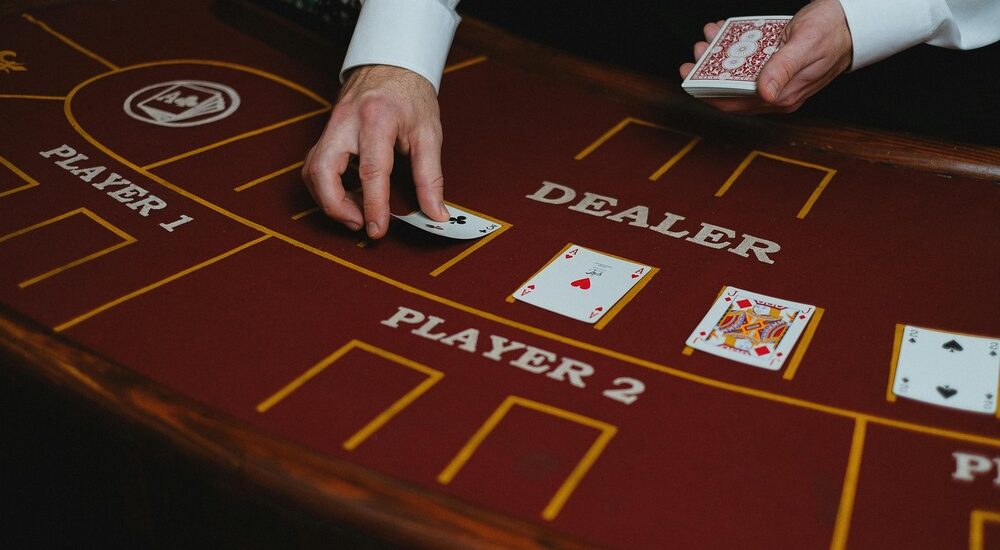Tracing the historical trajectory of Blackjack reveals its transition from traditional French casinos to the contemporary online gaming landscape. The game, known for its emphasis on skill and strategy, has captivated players across generations.
From its origins, Blackjack has evolved to be a prominent fixture in digital platforms today, sustaining its appeal to players worldwide. The history of Blackjack is a blend of tradition and innovation, showcasing its enduring popularity and adaptability to changing gaming environments.
Origins of Blackjack
Originating in the 17th century, Blackjack has its roots in French casinos, where it was initially referred to as “Vingt-et-Un,” translating to twenty-one. The objective was for players to achieve a hand total of 21 without exceeding it, mirroring the fundamental goal of modern Blackjack.
This game gained popularity within French gambling circles and gradually spread throughout Europe. By the early 19th century, Blackjack made its way to the United States, where it underwent adaptations to suit American preferences.
Casinos in America introduced enticing bonuses, such as a 10 to 1 payout for a hand comprising the ace of spades and a black jack (either the jack of clubs or the jack of spades), which led to the game being named Blackjack.
Evolution in French Casinos
French casinos played a significant role in the development of Blackjack, contributing to the standardization and popularization of the game. During the early 18th century, the game “Vingt-et-Un” emerged in French gambling establishments, introducing foundational elements that later shaped Blackjack.
Through gradual refinement, French casinos established key rules, such as aiming for a hand value close to 21, and introduced early strategies that added depth to the gameplay. This period marked the establishment of the first official Blackjack rules and strategies, which were pivotal in enhancing the game’s appeal.
French casinos played a crucial role in refining the mechanics and strategies of Blackjack, laying the groundwork for its eventual widespread popularity on a global scale.
Rise in American Gambling
The rise of American gambling in the 19th century significantly influenced the development and popularity of Blackjack. With the proliferation of gambling venues throughout the United States, Blackjack emerged as a favored game due to its blend of skill and chance. Its straightforward rules and engaging nature made it a popular choice in saloons, riverboats, and frontier communities.
The expansion of American gambling not only fueled the growth of Blackjack but also standardized its rules and introduced variations that remain in use today. Rooted in the vibrant gambling culture of 19th century America, Blackjack evolved over time, maintaining its appeal and eventually transitioning to online platforms.
Don’t forget to check out this article about https://us-gambling-casino.com/2024/10/10/european-vs-american-blackjack-rules-whats-the-difference/
Transition to Online Platforms
The advancement of technology in the late 20th century led to the adaptation of traditional casino games such as Blackjack to online platforms. This transition offered players a new way to enjoy the game without the need to visit physical casinos. Online Blackjack provided convenience, accessibility, and a variety of game variations to suit different preferences.
The digital format also introduced features like live dealer games, enhancing the overall gaming experience. This shift to online platforms represented a significant development in the history of Blackjack, making it more widely available and appealing to a broader audience.
Impact on Modern Gaming
The widespread availability of online platforms has significantly influenced modern gaming, with Blackjack playing a notable role. Its strategic gameplay and simplicity have left a lasting impact on various facets of the gaming industry.
Many contemporary video games incorporate elements reminiscent of Blackjack, such as decision-making in uncertain situations and managing risks. The game’s success in traditional casinos and online settings has spurred the creation of numerous Blackjack variations and related games, broadening its appeal.
Furthermore, Blackjack’s representation in popular culture, including movies and literature, has cemented its position as a timeless and iconic game. Its enduring presence in modern gaming is evident, as Blackjack remains a fundamental component of both conventional and digital gaming experiences.
Conclusion
The evolution of Blackjack from its origins in French casinos to its current popularity in online gaming reflects its enduring appeal. Combining elements of skill and chance, Blackjack has maintained its status as a classic game enjoyed by players for centuries. The transition to digital platforms has further expanded its accessibility to a global audience. Today, Blackjack remains a widely recognized and played game that offers both entertainment and strategic challenge to players worldwide.

